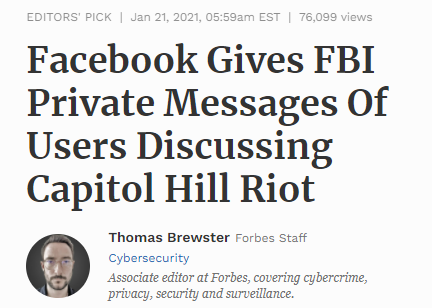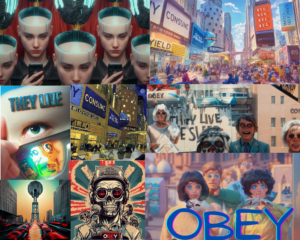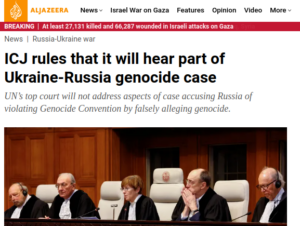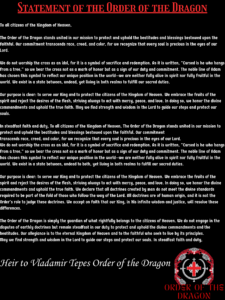Facebook Genocide

Facebook and the Myanmar Genocide
“Just when it seemed like Facebook’s controversies might have peaked, the company now appears to be obstructing a genocide investigation, and it’s using U.S. law to do it.”
-Time Magazine
Facebook aided and abetted the genocide of tens of thousands of Rohingya Muslims. Myanmar military personnel trained in Russia to master information warfare and utilized Facebook as a tool to carry out genocide. When Facebook did remove of the accounts, the company refused to provide the data for the accounts of Myanmar officials involved. Investigative journalists exposed Facebook’s role in the genocide in 2018.
Reuters reported on March 12, 2018 that the United Nations investigators determined Facebook was used to assist with the genocide:
“Marzuki Darusman, chairman of the U.N. Independent International Fact-Finding Mission on Myanmar, told reporters that social media had played a ‘determining role‘ in Myanmar. ‘It has … substantively contributed to the level of acrimony and dissension and conflict, if you will, within the public. Hate speech is certainly of course a part of that. As far as the Myanmar situation is concerned, social media is Facebook, and Facebook is social media,’ he said.
U.N. Myanmar investigator Yanghee Lee said Facebook was a huge part of public, civil and private life, and the government used it to disseminate information to the public.
‘Everything is done through Facebook in Myanmar,’ she told reporters, adding that Facebook had helped the impoverished country but had also been used to spread hate speech.
‘It was used to convey public messages but we know that the ultra-nationalist Buddhists have their own Facebooks and are really inciting a lot of violence and a lot of hatred against the Rohingya or other ethnic minorities,’ she said.“
On August 27th, 2018, BuzzFeed news published a story entitled “How Facebook Failed The Rohingya In Myanmar,” and shared details in how pervasive violent content aimed to encourage violence against Rohingya and Muslim’s was:
“BuzzFeed News’ analysis shows how widespread the problem of hate speech is on Facebook’s platform. A review of more than 4,000 posts by politicians from the Arakan National Party found that 1 in 10 of the posts — made between March 2017 and February 2018 — contained hate speech as defined by Facebook’s own public community standards. The ANP is the most popular party in Rakhine state, which was home to hundreds of thousands of Rohingya before they were expelled last year. It says it represents the interests of the ethnic Rakhines, the dominant group in the state, which is also the home of the Rohingya and other groups.
Posts by members of Rakhine state’s parliament compared Rohingya to dogs, said Muslim women were too ugly to rape, falsely stated Rohingya torched their own houses for a payout from NGOs, and accused Muslims of seeking to become the dominant group in the state by having too many children. Some even told Muslims to get ready to be killed. Some of the most popular posts identified by BuzzFeed News as hate speech garnered 3,400 reactions or were shared up to 9,500 times…
As the crisis worsened last year, the analysis shows that Facebook took no action for months. The platform finally removed many posts earlier this month after BuzzFeed News sent links to a spokesperson...
A recent report by Reuters found more than 1,000 posts, comments, images, and videos attacking Rohingya and other Muslims on Facebook. Beyond Myanmar, Facebook is also facing an onslaught of public pressure over its role in spreading and amplifying dangerous speech in places like Sri Lanka and South Sudan.”
Gambia filed an application to institute proceedings against Myanmar for genocide on on November 11th, 2019 before the International Court of Justice. Facebook’s refusal to intervene lead to an untold loss of life and human suffering. When reading about the atrocities, ask yourself what kind of human being (or company) would, in any way, refuse to bring the perpetrators to justice. Ask yourself if it is ethical to use Facebook and support its future existence. Ask yourself how you would feel if your children, your loved ones, your family were burned alive, tortured, raped, and murdered because Facebook allowed the Myanmar military to operate on its platform. And ask yourself why Facebook and Mark Zuckerberg have faced no real consequences for their actions.
The following is explicit and should will make anyone who values human life sickened. I have no shame admitting that I cried while reading the complaint. However, understanding true evil is necessary in order to conquer it.
Gambia Complaint Outlines Human Rights Violations
The Gambia filing is available for download here.
Under Point 6, the application states the following:
“Those facts are extensively documented by independent investigative efforts conducted under the auspices of the United Nations and corroborated by international human rights organizations and other credible sources. They establish that, against the backdrop of longstanding persecution and discrimination, from around October 2016 the Myanmar military (the “Tatmadaw”) and other Myanmar security forces began widespread and systematic “clearance operations” — the term that Myanmar itself uses — against the Rohingya group. The genocidal acts committed during these operations were intended to destroy the Rohingya as a group, in whole or in part, by the use of mass murder, rape and other forms of sexual violence, as well as the systematic destruction by fire of their villages, often with inhabitants locked inside burning houses. From August 2017 onwards, such genocidal acts continued with Myanmar’s resumption of “clearance operations” on a more massive and wider geographical scale.”
Point 7:
“Multiple UN investigations have underscored the genocidal intent of these
crimes. The UN Special Rapporteur on the situation of human rights in Myanmar, Ms Yanghee Lee (of the Republic of Korea), carried out extensive fact- finding in regard to Myanmar’s campaign against the Rohingya. She reported first-hand accounts of “attacks in which homes were set ablaze by security forces, in many cases with people trapped inside, and entire villages razed to the ground” She documented parents “witnessing their young children being thrown into fires.” She described Myanmar’s “security forces calling families out of their homes, separating men and boys to be executed in front of their families or taken away.” She further recounted the “testimony of women and girls being raped and then killed, some burned alive in their homes while unconscious or tied up.”
Point 14:
“The Mission’s September 2019 report confirmed its earlier conclusion that Myanmar is responsible for the “commission of genocide.”. It found: “the evidence that infers genocidal intent on the part of the State against the Rohingya, identified in its last report, has strengthened.”
Alarmingly, the Mission warned:
‘there is a serious risk that genocidal actions may occur or recur, and that
Myanmar is failing in its obligation to prevent genocide, to investigate
genocide and to enact effective legislation criminalizing and punishing
genocide.’“
Point 45:
“Investigative reporting by The New York Times disclosed in October 2018 that the ‘Myanmar military were the prime operatives behind a systematic campaign on Facebook that stretched back half a decade and that targeted the country’s mostly Muslim Rohingya minority group.’ This involved ‘hundreds of military personnel who created troll accounts and news and celebrity pages on Facebook and then flooded them with incendiary comments and posts timed for peak viewership.” The head of cybersecurity policy at Facebook said the company had found “clear and deliberate attempts to covertly spread propaganda that were directly linked to the Myanmar military.”
Point 48:
“I. The “clearance operations” that began on 9 October 2016:
48. In the early hours of 9 October 2016, a small number of Rohingya, armed mainly with sticks, knives and a few firearms, reacting to Myanmar’s persecution of the group, attacked three Border Guard Police posts in northern Rakhine State. Just hours later, the Tatmadaw, operating in co- ordination with the Myanmar Police Force and Border Guard Police, commenced what they called ‘clearance operations’ targeted at Rohingya villages in a designated ‘lockdown zone’ in central Maungdaw Township. During these operations, Myanmar forces systematically shot, killed, forcibly disappeared, raped, gang raped, sexually assaulted, detained, beat and tortured Rohingya civilians, and burned down and destroyed Rohingya homes, mosques, madrassas, shops and Qur’ans. As they committed these crimes, the perpetrators called their victims ‘people from Bangladesh’, ‘Bengali,’ and ‘Kalar.
- The first such “clearance operation” was conducted at Wa Peik village 94. Six military vehicles entered the village and began systematically killing Rohingya villagers. One survivor recalled: ‘When the soldiers entered the village, they started shooting . . . I saw them shoot at people as they fled.’ Another recounted: ‘The military would go in a house, then it would set on fire, then they went to another house, and fire would start. Every where they went a fire would start and smoke would rise.’
- The next day, 10 October 2016, Myanmar security forces carried out a
‘clearance operation’ at Doe Tan, a village located in Maungdaw Township. A survivor recounts:
‘The military came to our village on 10 October in the morning. First they started shooting into the air, people were scared and came out of their homes, and then they started killing people. They were shooting at people. We were all trying to flee, I was running and at that point I was shot and fell into the paddy field. Since I was running I am not sure on which side the bullet entered and where it exited. My cousin helped me and brought me home and treated my wound. My father was killed at the same time as I was shot.’ - “In some villages, the military used helicopters to shoot members of the Rohingya group 100. Survivors describe how bullets ‘rained’ on them whilst they tried to run away.”
- “During these operations, the military carried out mass executions of Rohingya men and boys. The UN Fact- Finding Mission reported that at the village of Dar Gyi Zar, ‘Tatmadaw soldiers captured a group of up to 200 men, women and children, and took them to a paddy field, where they were told to kneel.’ After beating them and ordering the men to remove their shirts, the military ‘separated from the group’ the ‘men and boys of approximately 12 years or older.’”
- “The women and children were taken to a house where they ‘heard repeated gunfire and the screams of the men and boys outside.’ When they emerged from the house after the soldiers had left, the women saw ‘[t]he bodies of the men and boys had been put in a pile, or series of piles, and burned using hay, harvested rice, and the removed shirts.”
- “A ‘major cause of deaths was due to burning of houses.’ The OHCHR
reports that ‘[n]umerous testimonies collected from people from different villages’ have ‘confirmed that the army deliberately set fire to houses with families inside.’ In some cases, the military “pushed Rohingya into already burning houses.’ The OHCHR also reported instances where ‘the army or Rakhine villagers locked an entire family, including elderly and disabled people, inside a house and set it on fire, killing them all.’ - “In one such case, an 11-year-old girl from Yae Khat Chaung Gwa Son village reported: ‘After entering our house, the army apprehended us. They pushed my mother on the ground. They removed her clothes, and four officers raped her. They also slaughtered my father, a prayer leader, just before raping my mother. After a few minutes, they burnt the house with a rocket, with my mother inside. All this happened before my eyes.’“
- “In some instances, the military tied Rohingya to trees and burned them
alive. A survivor from Yae Khat Chaung Gwa Son village recounts:
‘The military dragged my grandmother and grandfather out of their house. First they were severely beaten, then tied to a tree. The military then put dried grass, woods around them and set them on fire.’” - “Children, including infants, were deliberately targeted. According to the
OHCHR, victims ranged in ages ‘from newborns to teenagers.’ They included children who were ‘killed by live ammunition or stabbed while at home; while fleeing to safety; or while in farms or fields.’” - “A mother of four from Pwint Hpyu Chang reported:
‘I fled together with my four children. I was holding and carrying the two youngest. My two oldest children, my daughter who was six years old and my son who was 10, were behind me. When the armed men were running after me, I hid behind some trees and bushes. The men caught my two oldest children and killed them. They used a knife of the kind we use to slaughter goats. I saw this from where I was hiding.’“ - “Another survivor recounted:
‘In Kyet Yoe Pyin I saw the military killing a newborn baby of a distant
relative. She was about to deliver the baby just after the military entered the village. We were all inside the house and the military made us come out. My relative could not come out as she was in labour so they dragged her out and hit her stomach with a big stick. They killed the baby by stomping on it with their heavy boots. Then they burned the house.’” - “A survivor from the same village recounts: ‘They held me tight and I was raped by one of them. My five-year-old daughter tried to protect me, she was screaming, one of the men took out a long knife and killed her by slitting her throat.’”
- “Myanmar military and security forces committed sexual violence on a massive scale, including rape, gang rape, forced nudity, and sexual assault. The OHCHR reported that the majority of the rape victims it interviewed were ‘raped by more than one soldier, usually three to four but even up to eight officers.’ It also found: ‘Rape by an individual soldier would typically occur alongside a gang rape — i.e. several women would be targeted for rape within a particular house, school or mosque and the majority of them would be gang raped while some were raped by only one individual.’”
- “‘A survivor from Kha Maung Seik village, in Maungdaw Township,
described how: ‘When their parents were killed, and the children were standing alone, they [soldiers] threw the children in the river . . . We were watching from the other side of the riverbank. Even the newborns and the ones who could barely walk, they threw them in the river. It was not far from where we were hiding.’”
The United Nations Human Rights Council released a fact-finding report detailing the atrocities committed by the Myanmar military. The report explains how Myanmar used Facebook to assist with the genocide.
Mark Zuckerberg’s response to Vox in 2018 about the Myanmar military using the platform to initiate and perpetuate genocide:
“’The Myanmar issues have, I think, gotten a lot of focus inside the company,’ Zuckerberg said. ‘And they’re real issues and we take this really seriously.’
He recalled one incident where Facebook detected that people were trying to spread ‘sensational messages’ through Facebook Messenger to incite violence on both sides of the conflict. He acknowledged that in such instances, it’s clear that people are using Facebook “to incite real-world harm.’ But in this case, at least, the messages were detected and stopped from going through.
“This is certainly something that we’re paying a lot of attention to,” Zuckerberg continued. “It’s a real issue, and we want to make sure that all of the tools that we’re bringing to bear on eliminating hate speech, inciting violence, and basically protecting the integrity of civil discussions that we’re doing in places like Myanmar, as well as places like the US that do get a disproportionate amount of the attention.”
Facebook released a statement on November 5th, 2018 which shared that they investigated the issue involving human rights violations in Myanmar and:
“The report concludes that, prior to this year, we weren’t doing enough to help prevent our platform from being used to foment division and incite offline violence. We agree that we can and should do more.”
BuzzFeed News’ article shares the following additional information about Facebook’s response to the human rights violations:
“Facebook admits that it acted too slowly in the past and has promised to pour more resources into digital literacy campaigns and company personnel to target hate speech in Myanmar.
‘I do want to say that we know that over the past three years, we’ve taken too long to remove content. It’s important that we acknowledge that,” David Caragliano, content policy manager at Facebook, told BuzzFeed News in July. “We’ve learned from these experiences and not just on the policy side, but on the enforcement side, we are improving our emergency response processes.’”
Although Facebook claimed it would work to resolve the problem with Myanmar officials provoking violence and propogating genocide, BuzzFeed News uncovered several of the measures patently failed:
“Last summer, Facebook announced it would remove posts that included the anti-Muslim racial epithet kalar when it is used to attack a person or group. But BuzzFeed News’ analysis shows that hundreds of posts in the sample set used the term in exactly this manner. (The term kalar also has many other uses that have nothing to do with the slur, including in compound words — a fact that sparked a pushback in Myanmar after initial reports that Facebook decided to ban the word altogether.) It did not appear that the simple use of the word — even as a slur — was enough to get Facebook’s content moderators to take the posts down…
Some of the explicit calls for violence discovered by BuzzFeed News were taken down — albeit months after they were posted — but many posts evaded Facebook’s censors. Still other posts spread made-up stories, suggesting Rohingya groups were being trained by ISIS or had waged genocide against other groups in Myanmar.”
Facebook ignoring its role in inciting violence that perpetuated human rights violations shocks the conscious. What makes their role even worse is that Facebook has effectively censored tens of thousands of users for pettier offenses.
Facebook Reacts to Capitol Siege by Banning Trump
While Facebook ignored its ethical and moral obligation to filter violent content that violated its policies in relation to a genocide, the company took a very different approach in 2021. Reviewing Facebook’s role in the Capitol Siege and its response will demonstrate the continued threat the company poses upon innocent civilians.
Following the January 6th, 2021 Capitol Siege in DC, Big Tech has led the charge to de-platform users who promote or incite violence. Facebook decided to immediately suspend President Donald Trump’s account hours after the Capitol Siege. Twitter, Instagram, and numerous other platforms joined in banning Donald Trump, as well as an untold number of users who supported “wrong-think,” such as posting content about election fraud, and users who circulated “wrong-think” content.
The New York Times published a story on January 14th, 2021, entitled “After Barring Trump, Facebook and Twitter Face Scrutiny About Inaction Abroad,” outlining the hypocrisy of Facebook’s actions and how human rights organizations questioned the companies decision to censor Donald Trump but not groups committing human rights atrocities:
“For years, Facebook and Twitter have largely rebuffed calls to remove hate speech or other comments made by public figures and government officials that civil society groups and activists said risked inciting violence. The companies stuck to policies, driven by American ideals of free speech, that give such figures more leeway to use their platforms to communicate.
But last week, Facebook and Twitter cut off President Trump from their platforms for inciting a crowd that attacked the U.S. Capitol. Those decisions have angered human rights groups and activists, who are now urging the companies to apply their policies evenly, particularly in smaller countries where the platforms dominate communications….
David Kaye, a law professor and former United Nations monitor for freedom of expression, said political figures in India, the Philippines, Brazil and elsewhere deserved scrutiny for their behavior online. But he said the actions against Mr. Trump raised difficult questions about how the power of American internet companies was applied, and if their actions set a new precedent to more aggressively police speech around the world…
Many activists singled out Facebook for its global influence and not applying rules uniformly. They said that in many countries it lacked the cultural understanding to identify when posts might incite violence. Too often, they said, Facebook and other social media companies do not act even when they receive warnings...
In 2019 in Slovakia, Facebook did not take down posts by a member of Parliament who was convicted by a court and stripped of his seat in government for incitement and racist comments. In Cambodia, Human Rights Watch said the company was slow to act to the involvement of government officials in a social media campaign to smear a prominent Buddhist monk championing human rights. In the Philippines, President Rodrigo Duterte has used Facebook to target journalists and other critics.”
The events of January 6th will no doubt live in infamy. An unarmed female veteran, Ashli Babbitt, was ruthlessly executed. An officer shot Babbitt through a window of a barricaded door while a man casually walked down the hallway behind the officer, seemingly looking at his cell phone. 3 other individuals at the Capitol events on the 6th died from medical issues.
Facebook and other Big Tech companies immediately claimed that far right social media platforms, namely Parler, were used to promote violence and encourage participants of the Capitol Siege. Sheryl Sandberg, Facebook’s Chief Operating Officer, stated the following during an interview with Reuters on January 11th, 2021:
“I think these events were largely organised on platforms that don’t have our abilities to stop hate, and don’t have our standards and don’t have our transparency.”
Apple and Google banned the Parler app from their app stores and on Amazon Warehouse Services terminated hosting services to Parler. The bans occurred between January 8th and 9th.
Roughly a week later, multiple media outlets, including Salon and the New York Times, exposed Facebook’s role in the Capitol Siege.


Salon stated that the Siege would have been possible without Parler but not without Facebook:
“Available data suggests that Facebook played a much larger role than Sandberg suggested. As many as 128,000 people used the #StoptheSteal hashtag promoted by Trump and his allies until Monday, Eric Feinberg, a vice president with the Coalition for a Safer Web, told The Washington Post. At least two dozen Republican officials and organizations in at least a dozen states used the social network to plan bus trips to the rally that preceded the riot, according to a Media Matters analysis. Media Matters also identified at least 70 active Facebook groups related to “Stop the Steal,” against which the platform could have acted long before the riot. Days after the siege, Facebook’s algorithm was still suggesting events hosted by some of the same groups that organized the Stop the Steal rally….
Facebook’s algorithm has also placed ads for body armor, gun holsters and other military equipment next to content promoting election misinformation and the Capitol riot, according to BuzzFeed News.
Facebook previously came under fire for failing to crack down on extremist content ahead of the deadly 2017 Charlottesville white nationalist rally. It was used to organize numerous protests against coronavirus restrictions earlier this year, including an armed invasion of the Michigan state capitol. Facebook later removed certain pages linked to the Charlottesville rally and announced plans to remove thousands of QAnon-related accounts. These actions have all been “too little, too late,” Getachew says…
Carusone argued that Facebook ‘had a much bigger role’ in the riot, noting that Media Matters and others ‘brought to their attention’ numerous ‘red flags” they spotted in the lead-up to the riot, but Facebook managers ‘still didn’t do anything about it.‘
Apple and Google were being extraordinarily myopic and, frankly, hypocritical in singling out Parler,” he said. ‘Not because I want to defend Parler, but the math is the math. Facebook was worse.’”
Participants in the Capitol Siege also shared footage of the insurrection on Facebook.
Another interesting component to Facebook’s response to the Capitol Siege is its willingness to provide data to the FBI. Unlike the genocide in Myanmar, where Facebook is resisting to provide data and account information of human rights criminals, Facebook voluntarily provided data involving Capitol Siege rioters to law enforcement:

Politics aside, the interesting dynamic is that Sheryl Sandberg was aware of Facebooks role in the Myanmar human rights crimes. In fact, Sandberg testified before a US Senate Committee in September 2018 and was asked about Facebook’s weaponization by Myanmar officials to perpetuate genocide:
First, it’s a bit concerning how much her statement about Myanmar seek to minimize human rights atrocities. I don’t know about you, but throwing newborn children in to rivers to drown to death, burning people alive, gang raping women and young girls, and beating one and a half year old children to death is slightly more serious than “misinformation” that “can be associated with harm.”
Let me be clear: Facebook was aware of the actions by Myanmar officials. In fact, that’s likely why the company does not want to hand over data of Myanmar actors involved. Considering Facebook officials met with human rights officials to discuss the genocide and how the military used Facebook to achieve these evil objectives, Sandberg’s comments are an egregious assault on the suffering of the victims and survivors of grotesque crimes that most Americans could not imagine.
Second, Sandberg, like Facebook as a whole, was aware for years about its weaponization to commit human rights abuses throughout the world. Dismissing Facebook’s role in the Capitol Siege, in which an unarmed woman was executed by a law enforcement officer, is nothing more than a pathetic attempt to distort the truth: Facebook is the root cause of violence more often than any other online platform. Facebook is being used by those with evil intent to perpetuate death, genocide, rape, and insurrection. In over two years, Facebook has done nothing to reduce its role in fomenting, encouraging, and organizing violence.
Facebook’s behavior demonstrates that it values its corporate reputation and stock share prices more than human dignity or life. It seems as though Facebook’s censorship in response to the Capitol Riots was self serving to diminish its responsibility in yet another senseless death.
Regardless of political ideology, the vast majority of Americans reject unprovoked violence, murder, rape, and human rights violations. Facebook generates revenue in several methods, such as ads. Profits are strongly connected to traffic and having a large, active user base. Facebook, in no uncertain terms, generated profits from the genocide propaganda posted by Myanmar conspirators. Just like it profited off of fringe groups provoking violence at the Capitol. Facebook has no corporate ethics or political views. Instead, their ideology is simple: money.
Facebook provides a method for individuals to spread hateful content (from far left and far right groups alike). This discuss is beyond free speech and toleration. Facebook has knowingly been involved in too many deaths and human rights crimes to entertain the thought that there is a way to remedy the problems. Simply put, Facebook needs cancelled.
Facebook financially benefits from trolls who provoke lengthy internet debates. Why? Because the more traffic a website has, the more profitable selling ads is. Perhaps Facebook simply foments conflict, partisanship, and hatred to ensure Mark Zuckerberg’s great-great-great-great-great grandchildren still have a fully funded trust. Regardless of the why, it is time to reject companies like Facebook who demonstrate a continual course of conduct that threatens human life and dignity and shuns tolerance and peace.





